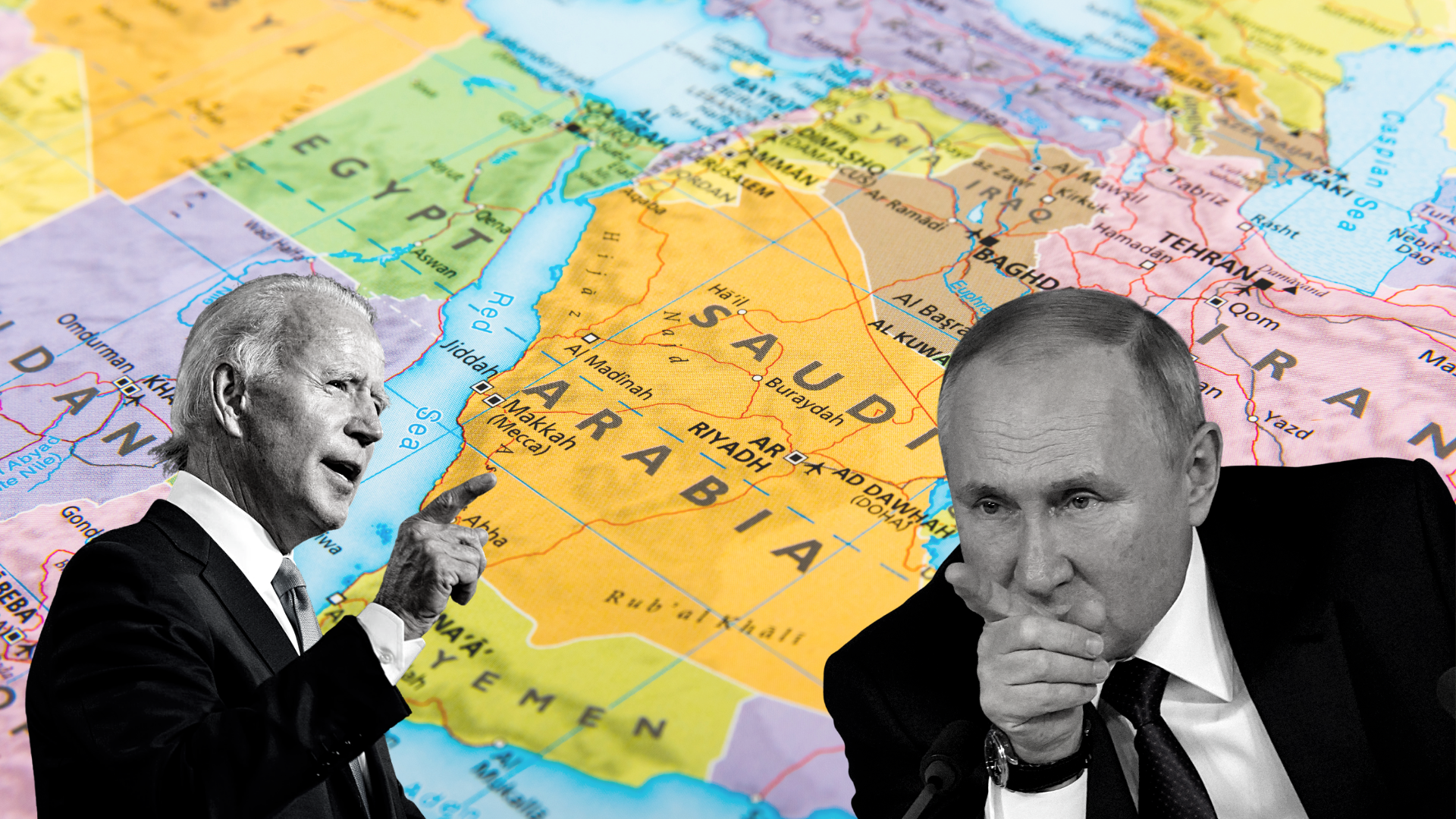Russia’s invasion of Ukraine: how will it affect the Middle East and North Africa?

By Rosa Cabús
10/06/2022
On February 24th 2022, Russia launched a full-scale military invasion of Ukraine. The incursion, which is still ongoing, has put into question the generally tacitly undisputed norm against territorial conquest. Since the Second World War, this principle has assured stability in the turbulent regions of the Middle East and North Africa (MENA), often at the expense of other humanitarian aspects. Although there have clearly been regime changes, the majority of the borders in MENA have remained the same. Likewise, major countries have found their answers by using terrorist tactics rather than directly confronting each other. In other words, the foundations of security in MENA have stayed the same. The current Russian invasion, however, is shaking the region in three key ways.
The first, and perhaps the most evident impact, is food security. MENA countries are amongst the most susceptible to food crises, and the Covid-19 pandemic has aggravated an already fragile situation. It should be noted that one of the main catalysts of the 2011 political uprisings in Egypt was the spiking price of food, wherein images of bread became a central theme of the protests, and “Bread, freedom, and justice” became a clarion call. In the midst of a global shortage, Russia’s invasion of Ukraine has made an already difficult situation even more complex given that both countries supply a large amount of the world’s wheat. Egypt faces an additional problem beyond the import price, namely whether it can continue to subsidize the cost of bread. In a year that saw prices skyrocket, almost 90% of Egypt’s population is registered for the bread rationing system. Between the end of the third quarter of 2021 and a few days after the Russian invasion, the price of soft wheat per ton increased by a staggering 43.5%. As is commonly known, famines do not usually arise from food shortages but rather from price increases. Although diversification is in process, this is not an issue that can be solved overnight, especially considering Egyptians’ high consumption of bread. Food insecurity is an even worse problem in other MENA countries such as Lebanon and Yemen, where economic conditions are of particular concern, and where humanitarian conditions are distressing to say the least. Overall, food insecurity almost always translates into political instability.
A second area of impact is the energy sector – specifically the sharp increase in the price of oil and gas, which ultimately has direct repercussions on the price of essential goods. Whilst oil prices were already ballooning before the Russian invasion of Ukraine, the latter was an aggravating factor to an already fragile situation. In addition, some MENA countries realized how the Russian attack provided a unique strategic bind which they were ready to exploit. Saudi Arabia and the United Arab Emirates (UAE), for example, could increase their oil production, which would eventually alleviate soaring prices. However, the two Gulf nations have made it clear that – for now – they are prioritizing their relations with the Kremlin. Although it could be argued that the Saudis do not want to be in breach of their deal with the Organization of the Petroleum Exporting Countries and Russia (OPEC+), the case remains that it is not pumping at its full capacity. At present, the Saudis are pumping ten million barrels a day when the maximum established is twelve. Countries such as Egypt, Iran, Israel and other Gulf states are not at highest risk because they are either self-sufficient or else they export hydrocarbons. Nonetheless, many others such as Lebanon are highly vulnerable to inflation. In any case, the rising prices of oil and gas has a significant impact on the price of daily commodities, which in turn can lead to social unrest.
The political impact of the Ukraine invasion seems to be that the MENA region, and indeed the whole world, is becoming genuinely multipolar. This shift is particularly visible in how many MENA countries have responded to the invasion: with apparent neutrality. This impartiality is relevant because one might have expected U.S. allies in the region to respond assertively and without hesitation in favor of the Americans. For instance, while the Abraham Accords provided hope for stability, they are also a clear opportunity for the U.S. Similarly to the 1940s postwar situation in Europe, the Abraham Accords provided a political and an economic buttress: in return for the MENA countries’ support, the U.S. gains considerable geostrategic benefits. In other words, these pacts illustrate a sort of tutelage over other local demands. In contrast, Russia’s invasion of Ukraine has significantly altered the global chess board, shaking the international order and challenging the Pax Americana. The evidence is that there is no clear diplomatic realignment around the two powers. With the exception of the Houthis in Yemen and Hezbollah in Lebanon, Iran, and Syria, the remainder of the countries in the MENA region are trying to maintain a balance between the U.S. and Russia. In sum, the fact that American allies are not siding incontestably with the U.S. reveals a transition to a multipolar world.
Beyond showcasing multipolarity, this sort of impartiality of MENA countries occurs for two other main reasons. First, the legacy of recent U.S. foreign policy in the wider region – most notably Afghanistan, Iraq, and Syria – has resulted in bitter feelings in Arabic-speaking countries. The U.S. is viewed in the same way as Putin is perceived by the West. In a poll from 2019, 66% of respondents considered that – after Israel – the U.S. poses the most active threat to the security of the Arab world. Although this result is clearly revealing, it would be naive to argue that this perception carries much weight as to whether countries should maintain neutrality on Ukraine, especially given that the majority of countries are autocratic. More importantly, strategic elements demystify this popular diplomatic response. Russia’s invasion of Ukraine even triggered American allies such as Saudi Arabia, UAE, Jordan, and Kuwait amongst others, who did not pronounce at the UN General Assembly whether they ought to suspend Russia from the Human Rights Council. These abstentions, however, are not borne of apathy. MENA countries have the opportunity to assert themselves. Morocco’s territorial dispute over Western Sahara, for example, does not allow the country to cut strategic relations with any country – especially with permanent members of the Security Council – despite experiencing a painful drought and high inflation. In any case, most MENA countries find strategic reasons, whether economic or political, for not alienating either the U.S. or Russia.
In the background, China appears to be discreetly observing the situation from a distance but with intense interest. The Chinese are well-aware that in the near future, they will be those in dispute for international hegemony, if achievable. On the one hand, China has considerable interests in the countries currently in conflict, substantiated in the Belt and Road Initiative. On the other hand, the Asian superpower is already challenging American influence in the MENA region. China does so by steadily deepening its economic, diplomatic, and military ties. Economically, China has many initiatives, amongst them the Maritime Silk Road. This strategic network of port infrastructures -although not free of challenges- aims to expand China’s dominance in the strategic gulfs and seas in the region. Diplomatically, China has launched the “China-Arab States Cooperation Forum” (CASCF), which in essence wants to promote cooperation. Militarily, U.S. intelligence discovered that China was aiding UAE to build a facility, with no apparent military purpose. Ultimately, although the construction did not move forward, there is a nascent security cooperation embodied in other bilateral military exchanges. In addition, China’s interest is especially worrisome for Washington since the latter’s objectives have included promoting democracy in a very illiberal territory. Instead, China does not interfere within regional idiosyncrasies. In sum, China’s presence -despite not being at the forefront of the current conflict in Ukraine- implicitly conditions how MENA countries position themselves.
In conclusion, the Russian incursion into Ukraine has impacted the region in many ways. The most evident consequences are food security and the price of oil and gas. Russia and Ukraine are major wheat exporters, and countries such as Egypt are heavily reliant on subsidized bread. Overall, the lack of access to food has historically been a major trigger of social unrest. Linked to the price of primary goods, energy also contributes to considerable increases in food prices. However, as has been seen, the price increases are in many cases due not only to the invasion, but also to profit-based strategic moves. At the macro level, the impact of the invasion in the region illustrates the global shift to multipolarity. Countries, which on other occasions would have clearly aligned with either of the two blocs, are now seemingly impartial. China has a muted presence, yet it has influence on the MENA regional response. These countries are aware that any of the potential future scenarios will bring opportunities, risks, and threats. Given this, there is no one single strategic assessment that works across the board, and every diplomatic move will require an evaluation of both the benefits and drawbacks.
The opinions expressed in this publication are those of the authors. They do not purport to reflect the opinions or views of the CGI or its contributors. The designations employed in this publication and the presentation of material therein do not imply the expression of any opinion whatsoever on the part of the CGI concerning the legal status of any country, area or territory or of its authorities, or concerning the delimitation of its frontiers.


